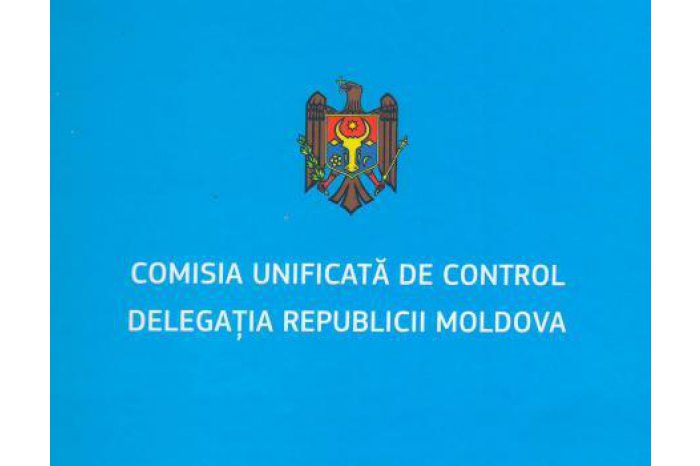Joint Control Commission fails to reach consensus on Security Zone's demilitarization issue
14:37 | 05.04.2019 Category: Official
Chisinau, 5 April /MOLDPRES/ - The positive moment which marked a 4 April meeting of the Joint Control Commission (JCC) was the making of progress as to the removal of the Transnistrian “border guards” post between the settlements Slobozia and Cremenciug. Thus, JCC approved the withdrawal of the standing post, assuming the task to monitor, through subordinated structures, the situation in the concerned sector and not allow similar infringements in the long run, the Reintegration Policies Bureau has reported.
Nevertheless, the Moldovan side signaled new cases of placement of mobile patrols of Transnistrian “border guards” in the Security Zone, which took place in the last week nearby the settlements Gasca, Hagimus, Harbovat and in the Bender city. A more serious incident and namely an attempt of detaining of four Moldovan citizens by Transnistrian “border guards” (for alleged actions of illicit crossing of the so-called “border”) was recorded between the settlements Chircaiesti and Chitcani on 31 March. The situation was investigated by bodies of the National Police.
As for a proposal by the head of Moldova’s delegation, launched at the previous meeting of the Commission, to work out measures to ensure the transparency of the Security Zone in terms of the presence of the sides’ military formations, both the delegation of Tiraspol and of Russia, after having analyzed this initiative of Chisinau during a week, turned it down without pertinent arguments. The representatives of these two components were bothered by the goal announced by Moldova’s delegation on the demilitarization of the Security Zone. We remind that the concept of gradual demilitarization of the Security Zone was stipulated in the Odessa Agreement back on 20 March 1998, signed at the high level by Moldova, Russia, Ukraine and the head of the OSCE Mission in Moldova and under a decision by the co-heads of the Joint Control Commission from 13 July 1999, all components of the Commission agreed to undertake concrete measures to this end.
Also, the sides failed to reach consensus on the formulation of an answer to a request by the OSCE Mission in Moldova on the way of use of the technical equipment provided for a good work of the General Staff of the Joint Peacekeeping Forces in March 2018, which, as a matter of fact, is not fully used according to its purpose. It is worth mentioning that the wide use of the devices would allow a better collection of information, more accurately documenting events in the Security Zone and avoiding disputes on the Zone’s geographical limits. Given that the delegations of the Transnistrian region and Russia say that the equipment cannot be used because of the lack of the respective instructions, the described situation points, at the same time, to the need to elaborate the regulation of the Joint Military Command – a step repeatedly made by Moldova’s delegation, yet, not backed by the interlocutors. On this subject, the sides agreed only on the holding of a special meeting between the heads of the delegations and the sides’ military representatives.
The fact that such a regulation is important results also from a case recorded on 1 April, when the exit of military observers, at a request by the Moldovan side, was procrastinated by about eight hours by the Transnistrian side. This aspect obviously did not allow documenting the abusive placement of a mobile post of “border guards.”
At the meeting, the sides approved a report of the Joint Military Command for the period 17 March – 2 April 2019 and approved the change of a military observer on behalf of Russia.

